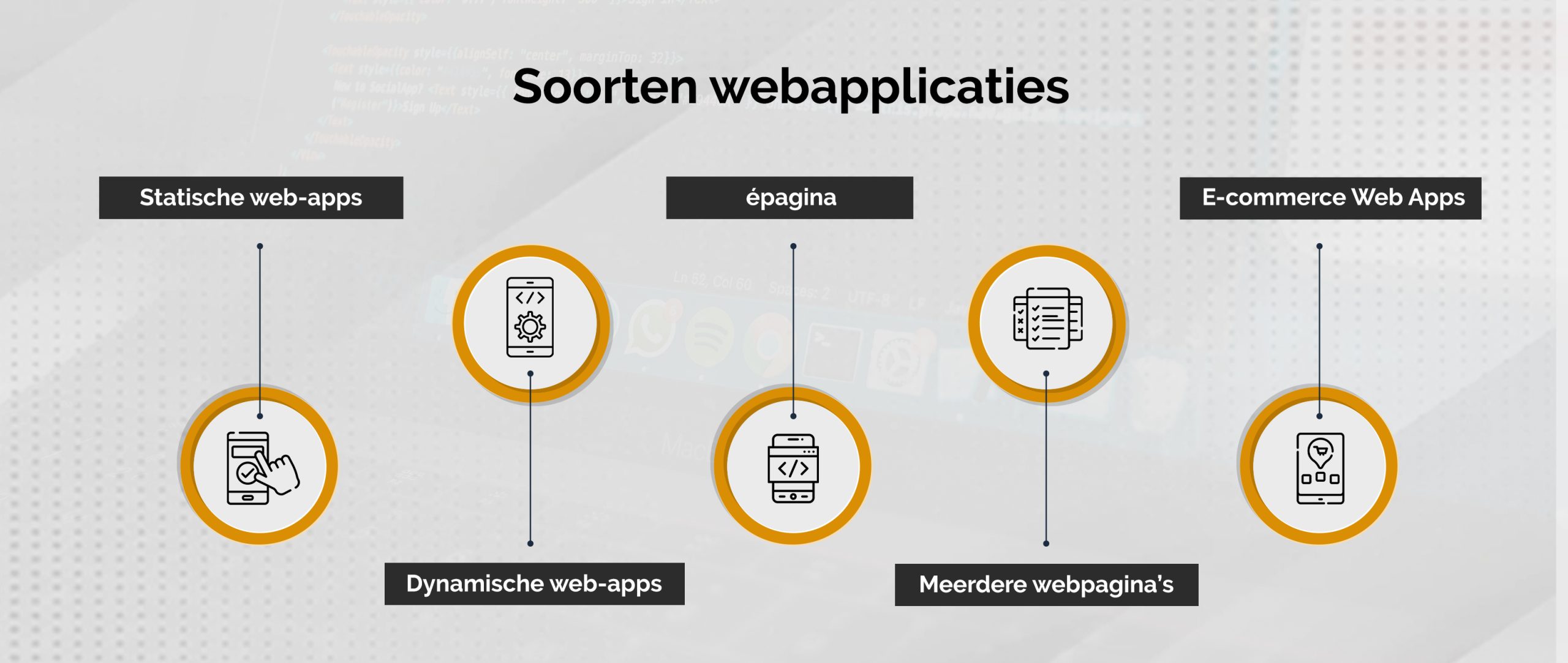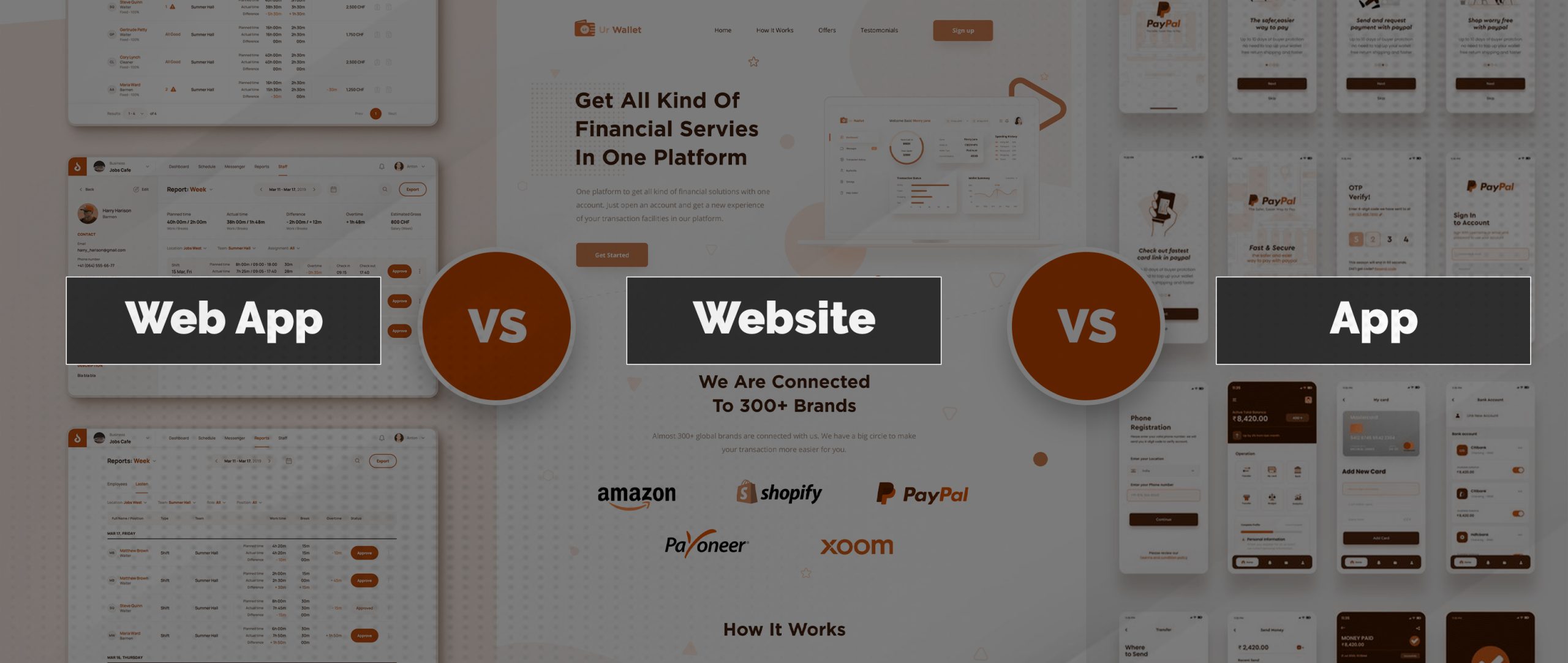As we move into 2023, the internet continues to evolve at an astonishing pace, with digital outlets becoming increasingly necessary for businesses. From website traffic to mobile applications, staying up to date with the latest data and figures in the websphere is of the utmost importance.
Forbes found that nearly a third of transactions are done online. Globalization, digitalization, and the pandemic have pushed businesses to build their online presence. According to Forbes, 28% of businesses are doing their transactions virtually.
Businesses use web application development , apps and websites to build their image, define their services, sell goods, customize customer interactions and improve the user experience. So, what type of online identity is ideal?
This article will clarify the differences between a web application, app, and website, explore their benefits, and indicate their suitability for certain use cases.
Go ahead, read more here.
What is a website?
A good website is a virtual space that is accessible to everyone through a web browser. It contains static pages with information, images and videos to inform or convince visitors. Companies usually create websites to advertise their services/products, generate leads and create opportunities for communication.
Types of websites
- Dynamic Website: Dynamic websites can generate different views of content on their pages when they are opened.
- Static Websites: Static websites provide users with a static view of information stored on the server, so that every user receives the same content.
Read more about: How much does a webshop cost?
Read more about: How much does a website cost?
Wat is een native mobiele app?
Apps are designed to be used on smartphones, tablets, and other devices. There are two primary types of apps: native and web. Depending on the type, the development process for an app can differ; with a native app, it is designed to be exclusive to a particular operating system such as iOS and Android and is not compatible with other platforms. Both web and native apps can be found in the respective operating system’s store, such as the App Store and Google Play Store.
Types of native apps
- Android: You can develop native Android apps in Java, Kotlin, Scala, and C++ programming languages.
- iOS: iOS apps can be developed in Objective-C or Swift and is a proprietary system specifically made for Apple devices. Unlike Android, the source code for iOS is not open.
What is a web application?
A web application is objectively essentially the same as a website. This is due to the fact that complex web applications also have a face that is easily accessible via a web browser. However, their functionalities, such as customer portals, quotation modules and planning systems, distinguish web applications from a regular website. This is because web applications are usually not available to everyone and their value lies in the processes that take place in the backend rather than in the front.
Types of web applications
- Static web apps: Are structured to deliver content directly to users without sending or receiving data from the server.
- Dynamic Web Apps: This application provides a two-way flow, updates users in real time, and allows the server to request additional data.
- single web page: Applications that function exclusively within a browser are called single-page applications.
- Multiple Web Pages: This application consists of multiple web pages, allowing users to easily access a range of pages.
- E-commerce Web Apps: E-commerce web applications allow people to easily buy and sell goods online.

A detailed comparison: website, web application and mobile application
Now that we’ve gone through the distinctions between websites, web applications, and apps, it’s time to break down the benefits and why we need each option so you can determine the right solution for your business.
When do you need a website?
Websites are essential for various purposes, such as showcasing your company’s products and services, promoting business growth and development, providing social proof, building trust and credibility, and making it easier for customers to find you. In addition, people can generate revenue from websites through advertising.
Benefits of having a website
- Mostly informative in nature
- Directly accessible
- Relatively low development costs
- Can be updated directly
- Platform independent
- Easy to maintain
- Accessible user interaction
- Accessible on all devices (desktop, mobile or tablet)
- Speaking of responsive and adaptive design
When do you need the web application?
Web applications are needed for various purposes, such as simplifying maintenance and eliminating the need for an app store. But, How much does a web application cost ? Organizations can benefit from the cost-effectiveness of web applications, as they are accessible via the Internet and can be used on various platforms, such as Mac, Windows, and Linux, allowing 24/7 access.
Benefits of Web Applications
- Focused on complex functionalities
- Directly accessible but often shielded
- Can be updated directly
- Platform independent
- Accessible on all devices (desktop, mobile or tablet)
- Speaking of responsive and adaptive design.
When do you need the Native Apps?
For businesses looking to expand their reach to mobile devices, a native app is a must-have due to its improved performance and speed. Native apps also excel in the gaming experience compared to web apps and browser-based games. Moreover, it is invaluable for users looking for offline accessibility.
Also read: Costs of Having an App Made
Benefits of native apps
- Can use the smartphone’s functionalities (camera, microphone, etc.)
- The content is available both online and offline
- Integration options with other apps
- Suitable for complex applications
- Better user experience on phones
- Works relatively quickly
Closing words
Once the key differences between web applications, apps, and websites have been established, along with their associated benefits, the logical next step is to assess your requirements. It’s time to evaluate your requirements and determine which type of software best suits your needs. Create an app or a native app , if you need the capabilities of a phone, then a native or web app is the right match. Alternatively, if the goal is to share information and make it accessible on any device, then a website should be created.
Ultimately, the choice between these options depends on your desired functionality, intended goals, website creation costs, and target audience. Have you already made a decision, or are you still in doubt? Don’t worry. The Zedrox team is here to help you identify the best course of action that aligns with your ambitions.




